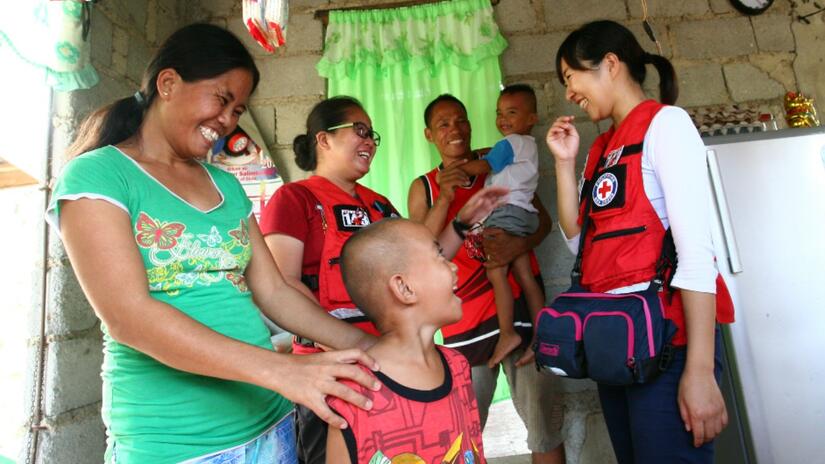By Leena Reikko, IFRC
For the past several weeks, the Philippine Red Cross emergency healthcare unit in the Philippines have been tending to the youngest of patients, children and babies coughing with fever, and whose bodies and faces are covered in red rashes. In early February, the local authorities declared a measles outbreak and since then 355 people have died, most of them children under 5 years of age.
But these patients are not the only ones at risk. Mothers treating their children in hospitals are now threatened by the same virus.
“We are in an acute phase of a chronic humanitarian situation. It is not only one generation that missed the measles vaccination. While the mothers do not have antibodies to pass to their children, they themselves are at risk too,” says Gopal Mukherjee, the health programme manager with the International Federation of Red Cross and Red Crescent Societies (IFRC) in the Philippines.
Many communities living in overcrowded barangays and in remote areas are also facing a challenge in getting to vaccination centers. Because of this, some parents push vaccinations to later dates, and even forget how important it is to vaccinate. This situation is worsened by the low level of immunity among communities in the Philippines, which makes the virus just as deadly after the peak of the measles crisis. While it is a contagious virus, measles can be easily avoided through vaccination.
“My son was not vaccinated because we have been so busy. It has just not been possible”, says Rosaly Abitona, 35, while she comforts her one-year-old son, John Carl, who had fallen ill a day earlier and taken to hospital.
The development of measles in the Philippines has been alarming. There was a 547 per cent spike from 4,000 cases of measles in 2017 to 21,812 cases in 2018. By the end of March this year, almost 26,000 people have been infected.
The Philippine Red Cross with has carried out mass vaccinations in the worst-affected districts, immunizing more than 15,500 children to date. They are also running campaigns to raise awareness on the importance of vaccinations to stop this virus from spreading further.
Article
World Immunization Week: Delivering vaccines and trustworthy information to communities around the world
World Immunization Week: Delivering vaccines and trustworthy information to communities around the world
| Article

